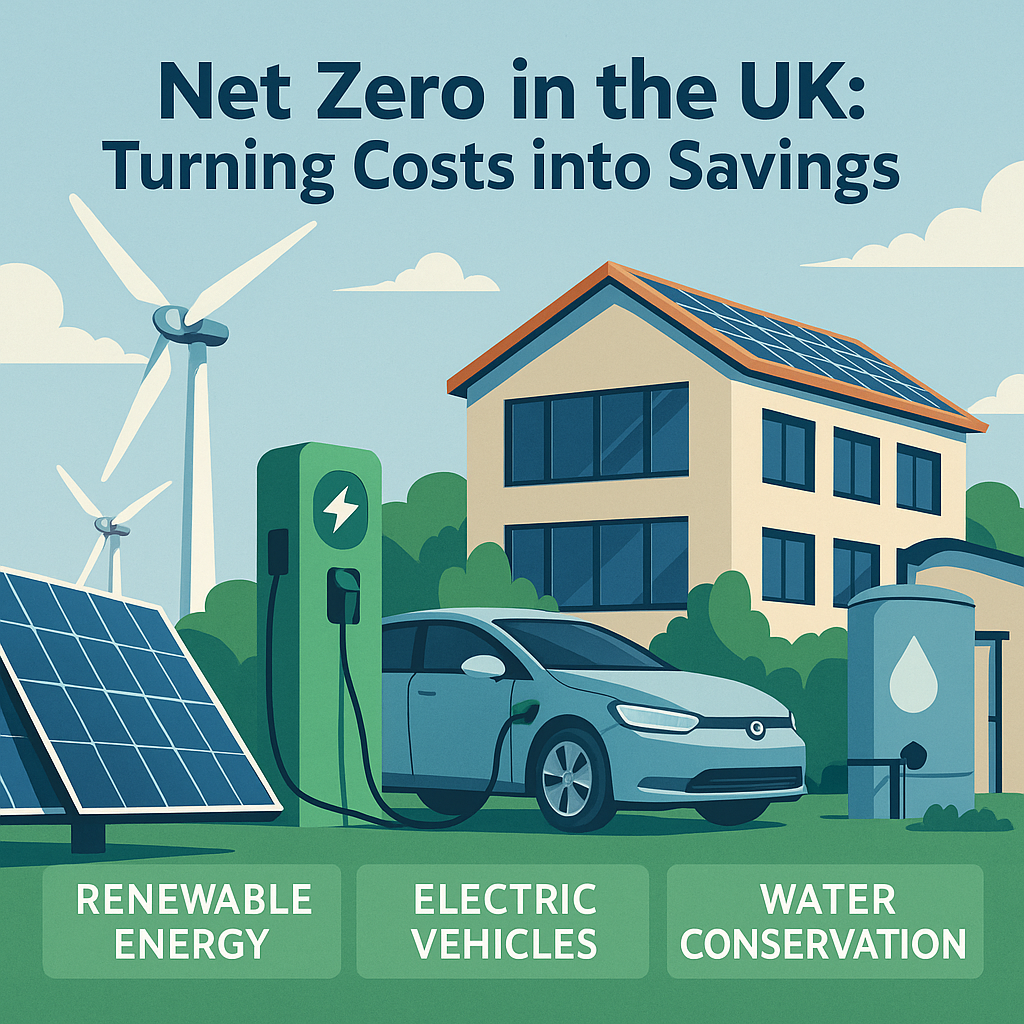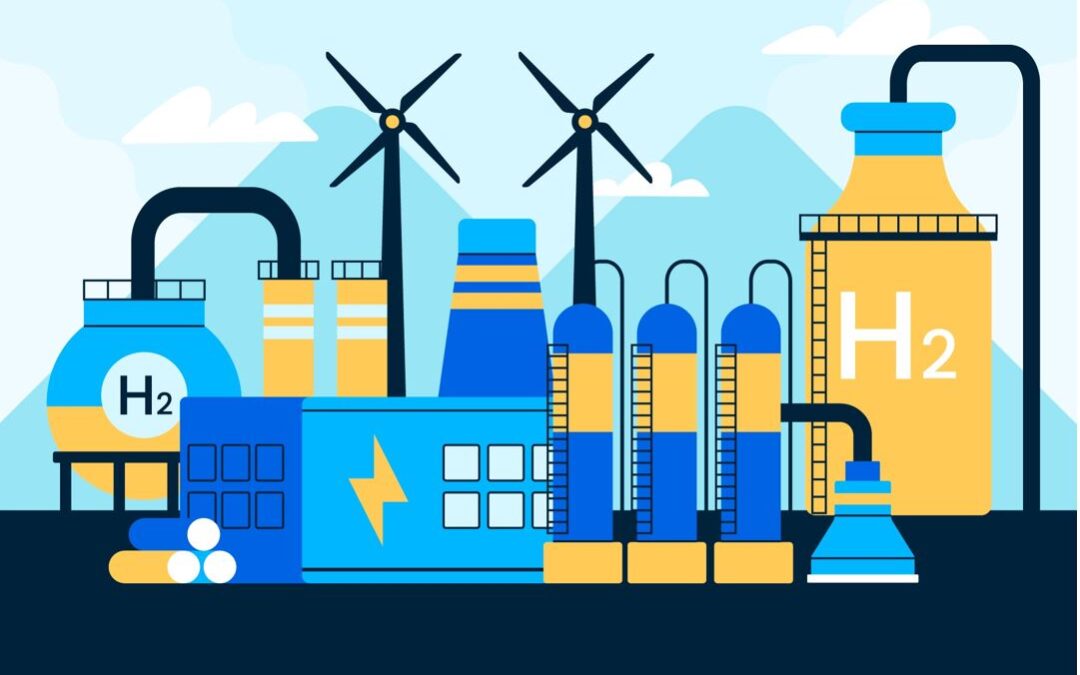The transition to net zero is often framed as a financial challenge. Businesses face the prospect of greening factories, electrifying transport fleets, redesigning buildings, and shifting towards renewable energy sources—all of which require significant upfront investment. For energy-intensive and cost-sensitive industries, these commitments can appear daunting, even risky.
Yet focusing only on immediate costs misses the bigger picture. Across the UK economy, companies are increasingly finding that adopting net zero technologies delivers substantial long-term benefits. Lower energy bills, reduced reliance on volatile fossil fuel markets, and improved operational efficiency are helping to offset initial expenditure. At the same time, firms that lead on climate action often gain reputational advantages, better access to finance, and greater resilience in a changing policy environment. Far from being a burden, the net zero transition is proving to be a sound economic strategy—one that, when managed carefully, strengthens competitiveness while reducing costs.
Author: Yogesh Nanda

Short-Term Costs vs Long-Term Benefits
There is no denying that the transition to net zero involves short-term costs. Installing solar panels, replacing traditional boilers with low-carbon heating systems, modernising facilities, or designing carbon-neutral buildings all require capital that could otherwise be spent elsewhere. For smaller businesses, this can strain cash flow.
However, when considered over their full lifecycle, these investments often pay for themselves—and more. Renewable electricity, such as large-scale solar PV (≈ £44/MWh), onshore wind (≈ £45–50/MWh), and offshore wind (≈ £55–60/MWh, lower in favourable auctions), is already cheaper than new gas generation (≈ £85/MWh for unabated CCGT commissioned in 2025; ≈ £114/MWh in high fuel/carbon price scenarios).
Energy-efficient buildings lock in reduced heating and cooling costs for decades. Digital monitoring and optimisation systems can cut energy consumption by 10–20% almost immediately. Moreover, as carbon pricing mechanisms such as the UK Emissions Trading Scheme expand, delaying action risks exposing companies to rising compliance costs. In this sense, upfront investment becomes a form of insurance against future volatility and regulatory tightening.
Case Studies: Why Net Zero is Worth It
Several UK examples show how upfront costs translate into lasting financial and operational benefits:
-
Tesco – Signed a 15-year Power Purchase Agreement for around two-thirds of the output from Cleve Hill Solar Park, the UK’s largest solar farm. This shields Tesco from fossil fuel price volatility and ensures stable long-term energy costs. AI-driven refrigeration optimisation across 300+ distribution centres has already saved ~4 gigawatt hours of electricity annually, cutting emissions by 835 tonnes. By 2030, Tesco expects renewable sourcing to be cost-neutral, with net savings thereafter.
-
GlaxoSmithKline (GSK) – At the University of Nottingham, GSK co-funded a carbon-neutral laboratory built with sustainable timber, solar panels, passive ventilation, and a biofuel combined heat-and-power system. Though initial costs were higher, the lab consumes 37% less electricity and 15% less heating energy than a conventional facility. Over 25 years, operational savings are projected to outweigh the upfront expense.
-
BedZED Community, London – The Beddington Zero Energy Development pioneered carbon-neutral housing. Residents achieved 88% less heating demand, 25% less electricity use, and 57% less hot water consumption compared with UK averages. Lower bills demonstrated that sustainable living can deliver financial as well as environmental gains.
These case studies demonstrate a consistent pattern: while the road to net zero can be capital-intensive, the payback is real and enduring.
How CAESL Helps Businesses Overcome the Barrier
While large corporations prove what’s possible, Chamberlains Aqua & Energy Systems Ltd. (CAESL) ensures that organisations of all sizes can capture similar benefits. Our solutions address the barrier of high upfront costs by combining consultancy, performance contracting, water efficiency, and renewable innovation:
-
EPC⁺ – Comprehensive energy and water audits uncover inefficiencies, sequencing low-capex quick wins alongside deeper retrofits. Projects are delivered with defined performance outcomes, helping companies adopt solutions with reduced risk. UK SMEs can often reduce energy use by 20–30% through low-cost interventions that CAESL helps implement.
-
Route to Net Zero – CAESL supports organisations in assessing their current position, setting realistic sustainability targets, and developing a clear, achievable roadmap towards net zero.
-
Smart Water Solutions – By integrating greywater recycling, rainwater harvesting, and water-saving appliances, CAESL reduces potable water demand and the energy required for pumping, heating, and treatment—cutting both costs and emissions.
-
TASHEX Solar Innovation – Our patented AI-powered add-on for solar panels lowers operating temperatures and enhances performance. Pilot projects have shown up to 28% higher solar output, with ~20% improvements typical, significantly boosting renewable ROI.
Through this mix of services and technologies, CAESL transforms the net zero transition from a daunting upfront cost into a pathway of measurable savings.
Conclusion: From Obstacle to Opportunity
The evidence is clear: while the transition to net zero requires investment, it is not a financial burden—it is a pathway to resilience, competitiveness, and cost reduction. Tesco’s renewable strategy, GSK’s sustainable laboratory, and BedZED’s community design all show that investing today pays dividends tomorrow.
The real question is not whether businesses can afford to pursue net zero, but whether they can afford to delay. Those who act now will lock in stable energy costs, avoid future compliance risks, and strengthen their reputation.
With CAESL’s expertise in audits, water and energy optimisation, and patented renewable technologies, businesses of every size can move confidently towards sustainability. CAESL transforms net zero from a financial obstacle into an economic opportunity.
References
- Carbon Brief. (2023). Net zero transition will deliver at least £164bn in benefits to UK. Available at: https://www.carbonbrief.org/net-zero-transition-will-deliver-at-least-164bn-in-benefits-to-uk/
- Star Refrigeration. (2024). Tesco Ethos case study: reaching net zero with cool data. Available at: https://www.star-ref.co.uk/wp-content/uploads/2024/04/Tesco-Ethos-StarCare-Case-Study-Reaching-Net-Zero-with-Cool-Data-Star-Refrigeration.pdf
- The Guardian. (2024). Tesco signs deal to buy enough solar energy to power 144 large stores. Available at: https://www.theguardian.com/environment/2024/oct/17/tesco-signs-deal-to-buy-enough-solar-energy-to-power-144-large-stores
- Mullender, R. (2025). Electrifying changes: how Tesco is supercharging its journey to net zero. The Guardian. 12 February 2025. Republished via Inkl. Available at: https://www.inkl.com/news/electrifying-changes-how-tesco-is-supercharging-its-journey-to-net-zero
- Bond Bryan Architects. (n.d.). The GSK Centre for Sustainable Chemistry (Carbon Neutral Laboratory), University of Nottingham. Available at: https://bondbryan.co.uk/project/the-gsk-centre-for-sustainable-chemistry/
- (2002). BedZED: Beddington Zero Energy Development – case study. Available at: https://www.bioregional.com/projects-and-services/case-studies/bedzed-the-uks-first-large-scale-eco-village
- Department for Business, Energy & Industrial Strategy (BEIS). (2020). Electricity Generation Costs 2020. London: UK Government. Available at: https://assets.publishing.service.gov.uk/media/5f450b9be90e07529c25a9c5/electricity-generation-cost-report-2020.pdf
- Solar Power Portal. (2023). Renewables predicted to be 61% cheaper than gas in 2025 – DESNZ. Available at: https://www.solarpowerportal.co.uk/utility-scale-solar/renewables-predicted-to-be-61-cheaper-than-gas-in-2025-desnz
- Carbon Trust. (2019). Effective Energy Management for Business Guide. Carbon Trust. Available at: https://www.carbontrust.com/our-work-and-impact/guides-reports-and-tools/effective-energy-management-for-business-guide [PDF version: https://ctprodstorageaccountp.blob.core.windows.net/prod-drupal-files/documents/resource/public/Effective-energy-management.pdf]
- Solar Energy UK. (2020). Large-scale solar provides cheapest power says government report. Available at: https://solarenergyuk.org/news/large-scale-solar-provides-cheapest-power-says-government-report/
- HM Government (Department for Energy Security and Net Zero). (2022-2025). UK Emissions Trading Scheme (UK ETS): Technical Guidance and Tools. GOV.UK. Available at: https://www.gov.uk/government/collections/uk-emissions-trading-scheme-uk-ets-technical-guidance-and-tools



